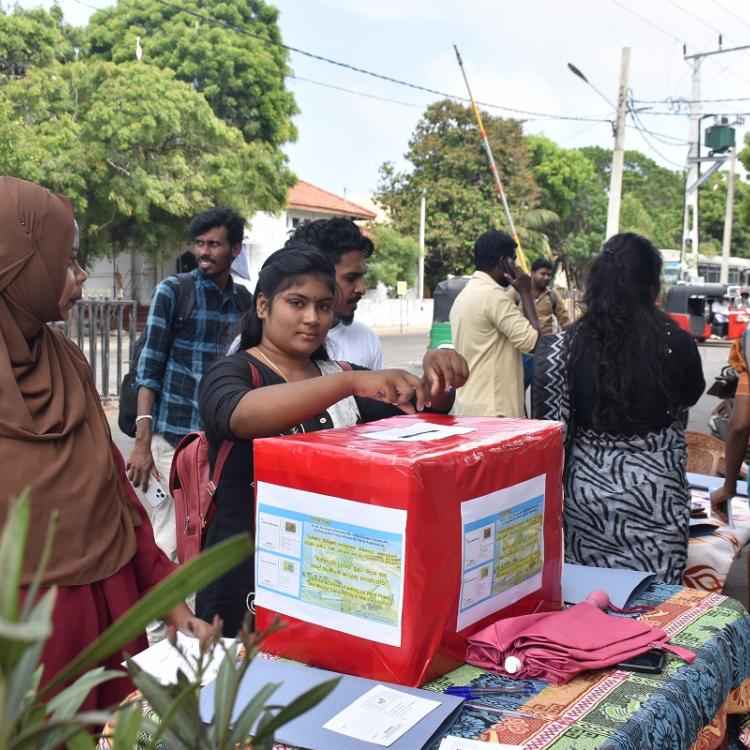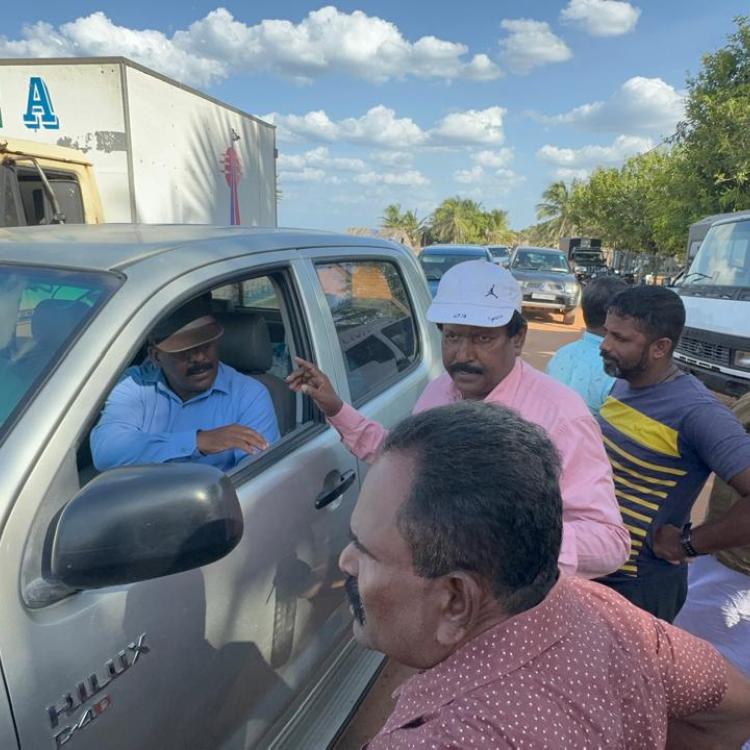Eelam Tamil residents, alongside civil society organizations, gathered in Olaithoduvai, Mannar last week to oppose government-led soil sampling for a controversial mining project.
Last Thursday, approximately 20 government officials, including representatives from the Mannar District Assistant Governor’s office and the Environmental Authority, arrived in Olaithoduvai Nagar, a region under the Mannar Divisional Secretary, to collect soil samples for chemical analysis. The soil sampling, intended to assess the area’s potential for sand mining, would involve both government and private lands.
When news of the officials’ presence spread, Tamil residents, social activists, former parliament members including Selvam Adaikkalanathan, and other civil organization leaders gathered at the site. The locals blockaded the road and prevented government vehicles from entering the area. The protest escalated, drawing large crowds of community members who voiced their concerns about the potential environmental and social impact of the proposed mining operations.
In response to the demonstration, Sri Lankan police were deployed to the scene and filed a ‘B’ report against several individuals involved in the protest, including Adaikkalanathan, lawyer S. Tinesan, Citizens’ Committee President Marcus Adikalar, and Union of Public Organizations President VS Sivakaran. Citing Section 106 of the Criminal Procedure Code, the police sought an injunction to prevent these individuals from engaging in further protest activities.
Tinesan, representing the protesters, reported that the police officer handling the case unexpectedly left the court before the application process was completed and returned with a request to refile the application. This procedural delay has left local activists questioning the intent of authorities and the transparency of their actions.
This is not the first instance of public outcry against mining in Mannar. The proposed sand mining project has drawn widespread criticism from environmental organizations, who argue that the extraction process will deplete local resources, damage ecosystems, and contaminate water sources, impacting both Tamil communities and the biodiversity of the North-East.
Environmental groups have consistently warned that sand mining poses significant risks to Mannar’s groundwater systems, potentially contaminating freshwater sources with salt water. The Centre for Environment and Nature Studies (CENS) recently highlighted the detrimental effects that the mining could have on Mannar’s unique ecosystems, including the destruction of palmyrah forests and habitats essential for migratory birds.

.JPG)
.JPG)
.JPG)
.JPG)
.JPG)

